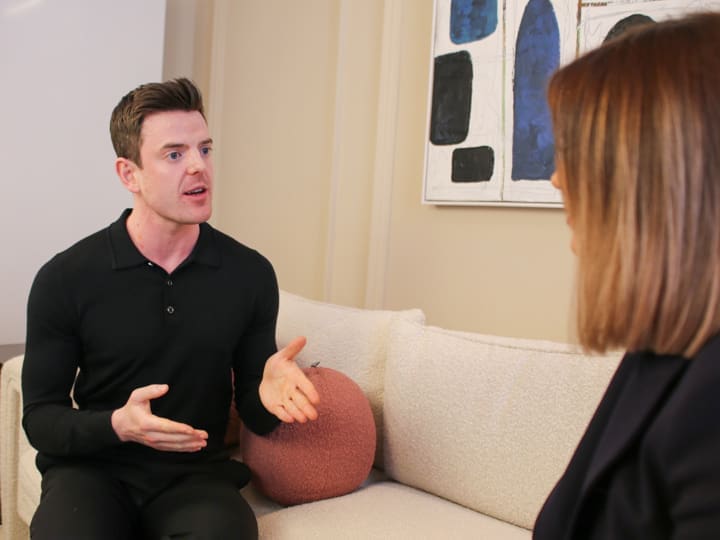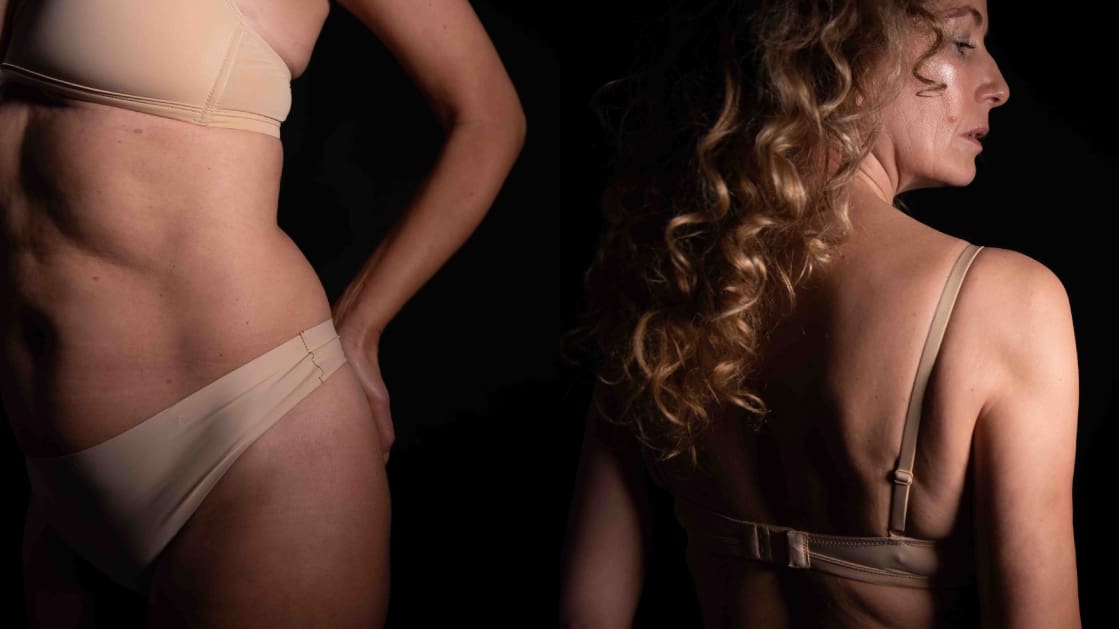McKeown Medical
167 Bath Street, Glasgow, G2 4SQ
Date posted — 24.04.25

Being diagnosed with fibroids can feel overwhelming. You may have noticed changes in your body, such as unusual bleeding, bloating, or pelvic pain, and suddenly you’re facing medical terms and treatment options you don’t fully understand.
At McKeown Medical, we believe in helping you make sense of it all with clear, expert-led information and compassionate care. In this article, we’ll answer some of the most frequently asked questions about fibroids to help you feel more informed and confident about your next steps.
Fibroids (also called uterine fibroids or leiomyomas) are non-cancerous growths that develop in or around the uterus. They vary in size, from as small as a seed to as large as a melon, and can appear as a single growth or in clusters.
Fibroids are incredibly common. It’s estimated that around 2 in 3 women will develop at least one fibroid during their lifetime. They typically affect people in their 30s and 40s, but can occur at any age.
Many fibroids don’t cause any symptoms and are only discovered during routine scans or examinations. However, others can lead to significant discomfort and disruption in daily life.
The symptoms of fibroids depend on their size, number, and location within the uterus. Some of the most common include:
Not everyone with fibroids experiences symptoms, but if you’re noticing any of the above, it’s worth seeking medical advice. At McKeown Medical, our expert team can help you get the answers you need through an initial consultation.
Fibroids don’t cause weight gain directly, but they can lead to abdominal bloating or a noticeable bulge in the lower stomach. This is especially true when fibroids are large or numerous. For some, this change can mimic the appearance of weight gain even if body fat hasn’t increased.
No, fibroids are not cancerous. They are benign tumours, meaning they do not spread to other parts of the body. In extremely rare cases, a cancerous growth called a leiomyosarcoma can develop in the uterus, but this is not thought to arise from a fibroid.
Importantly, having fibroids does not increase your risk of uterine cancer.
If you experience symptoms such as soaking through sanitary products frequently, feeling unusually fatigued, or suffering from shortness of breath during your period, it may be time to consult a healthcare professional. Early intervention can help prevent complications and improve your quality of life.
Still, it’s vital to monitor any changes in your symptoms and undergo regular checkups—especially if you’re postmenopausal or experiencing unusual bleeding.
The exact cause of fibroids isn’t fully understood, but several factors are known to play a role:
Fibroids can grow slowly or rapidly, or they may remain the same size for years.
At McKeown Medical, we offer a range of evidence-based treatments tailored to your symptoms, lifestyle, and personal preferences. These include:
Medication
Minimally invasive surgery
Hysterectomy
We understand that every woman’s situation is unique, which is why we take a personalised approach to treatment planning.
Fibroids are common, but they don’t have to be confusing or debilitating. With the right care, they can be managed or removed effectively, giving you back control over your health and quality of life.
At McKeown Medical, our gynaecology service is led by Dr Iain Martin, a highly experienced consultant specialising in the diagnosis and treatment of fibroids. Whether you’re newly diagnosed or considering your treatment options, we’re here to help you find the path that’s right for you.
Book a consultation to speak with one of our experts and explore your treatment options today.
Best in the business without a shadow of a doubt. Over 10 years I have been a client, never once had an issue with my treatments. High standards/practice speaks volumes.
Charlene DouganMay 2024

We are well and truly into filler season now with all of our patients planning ahead for weddings and summer holidays.
This is one of our patients who wanted to treat her jowls and facial sagging, but didn’t want surgery so we opted for our signature non-surgical volumetric facelift using filler injections only. This is her a couple of weeks later looking, and feeling, fabulous.
What do you think?

In case you missed it, here’s Dr Rhona and Dr Iain’s live Q&A discussing everything to do with periods and heavy menstrual bleeding.
Thanks to everyone who joined and asked questions. We’ll be doing more of these so keep an eye out for the next one!
And if you’d like to know more about the treatments we can offer for heavy menstrual bleeding, check out the link in our bio!

Thank you to our incredible patient for allowing us to share these pictures with you.
This patient has been with me for years but the thing we have always struggled with has been the texture of the skin around the mouth and lower face which has had a lot of sun over the years.
We’d tried less invasive options but ultimately when the skin changes get to this level the only thing that makes a dramatic improvement is full field resurfacing.
There is literally no other treatment capable of undoing sun damage like this. The patient is only a few weeks post-op and still a bit red so she is wearing make up to hide the redness, but already obsessed by the texture of her new skin.
What do you think?
If you`d like to know if you`d benefit from this treatment send us a DM with some pictures or visit the link in our profile for more information on full laser resurfacing.

We`re going live on Wednesday at 7PM! Join Dr Rhona and Dr Iain (@driainmartin) on Instagram live, where they`ll be discussing everything about periods and heavy menstrual bleeding including:
What is “normal” when it comes to menstruation
Heavy periods - what is a heavy period and what might be causing it
Myths vs facts - getting the right information and the right treatment for period problems
They`ll also be answering your questions live, so if there`s anything you`d like to ask, leave a comment or head to our stories. We hope you can join us!

Since we are now in full swing filler season, I’m very grateful to this patient for allowing us to share her pictures to demonstrate how much lift we can achieve just using filler.
Discover more about our method at the link in our bio.

Summer is almost here! If you’re putting off wearing your favourite summer dresses and shorts because of varicose veins, now is the time to think about treatment.
Varicose veins aren’t just a cosmetic concern - they can ache and throb, as well as make us feel self-conscious, especially as the warmer weather approaches.
With so many treatments available, it can be difficult to know where to start. Here’s our lovely Dr Alex with a quick overview of how we can help reduce discomfort, improve appearance and boost your confidence in time for summer.
If you, or someone you know, have been thinking about treatment, now is a great time to explore your options with plenty of time to feel the benefits before summer - check the link in our bio for more details.

Now that spring has finally sprung we are very much in peak time for filler treatments in the clinic.
So many patients would benefit from filler, but are scared of them because of the horror stories so I wanted to share a few examples this week of what filler looks like - in the correct hands!
Here are some examples of the natural looks we achieve with the McKeown Method.
Discover more about our method at the link in our bio.

What a difference a week is! This is one of our patients just a week out from her deep plane face and neck lift by the ever so talented @bramhallplasticsurgery.
The deep plane technique is the most technically challenging facelift to perform and Russell remains the only surgeon in Scotland performing this procedure, which involves going much deeper into the face to reposition the tissues rather than just pull them tight.
The outcome is a much more effective rejuvenation, even in unflattering poses when your head is bent forward, and a result that lasts much longer than a traditional facelift.
What do you think?

Thank you so much to our wonderful patient for allowing us to share her before and after pictures. She’s around 6 weeks after full field resurfacing.
One of the great things about this treatment is that, in addition to wiping wrinkles away, it also gives some pretty impressive skin tightening too. If you look at her forehead, upper and lower eyelids you can really see how much tighter the skin is.
The stubborn forehead lines and lines through the eyebrows have gone and, of course, the lines around the mouth are significantly reduced. These will continue to improve for up to six months as the skin continues to heal. She’s still a little pink, which will fade over the next few months, but with a little tinted moisturiser you’d never know. The patient is over the moon.
What do you think?
We can now offer full laser resurfacing with sedation and you can see more about the procedure in the link in our profile.
